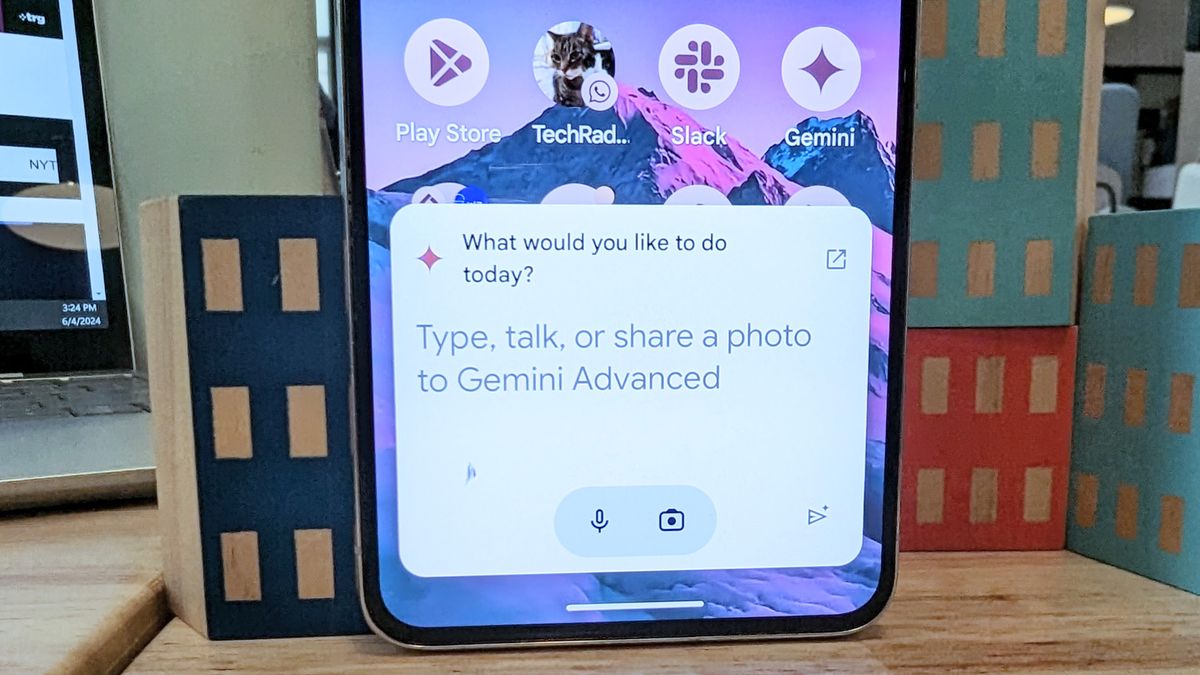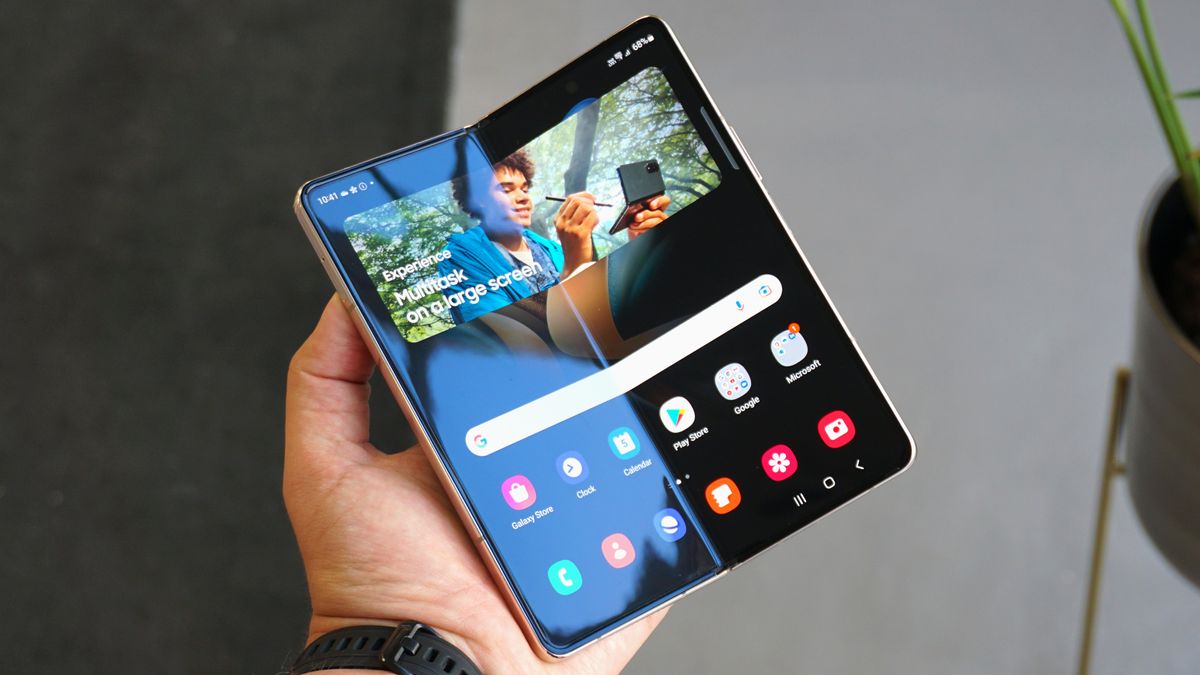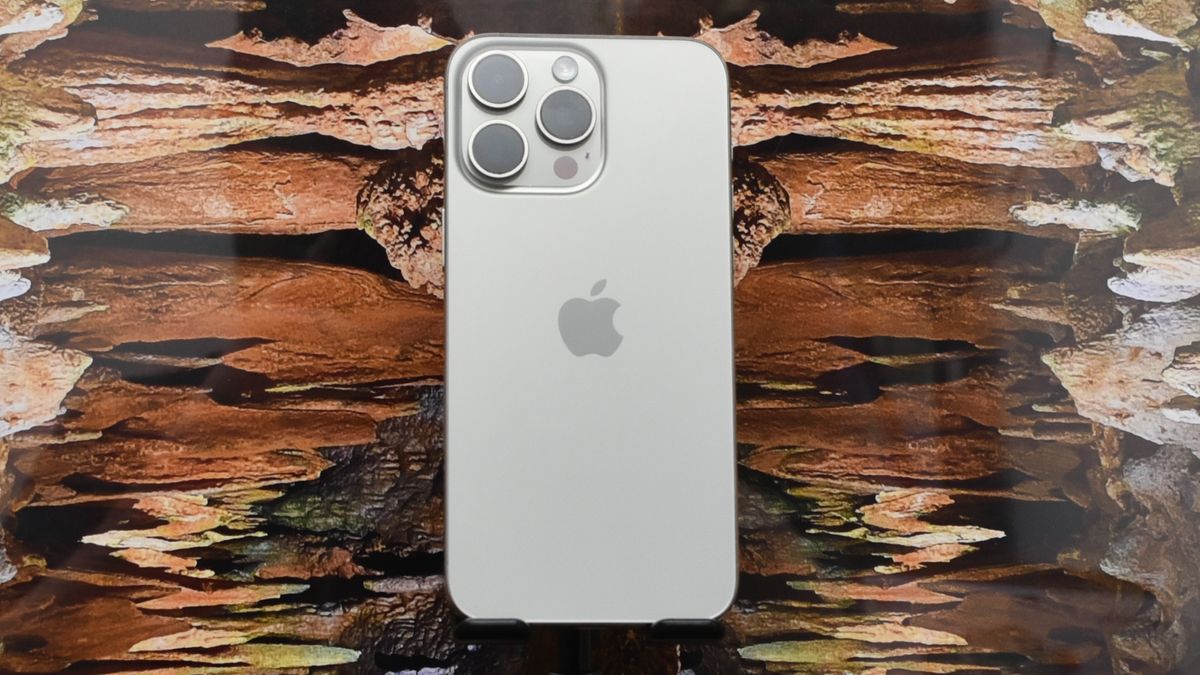Moreover, I tried by offering Galaxy S24 some tough love. I thought I was logical, even right. No, I was wrong when I said that any iPhone was a better buy than Samsung’s flagship S24.
In fact, after testing the AI features and learning about Apple Intelligence plans, I’m particularly impressed with what Samsung is offering in the Galaxy S24 that Apple won’t iPhone 15 the owners.
Why was it me? so bad for the Galaxy S24? I don’t want to dwell on its flaws; it’s not about that. This is to say I was wrong.
I felt really bad about the Samsung software, though, and I have more than a professional interest in it. I personally own Samsung phones and have recommended them. My dad wears one Galaxy S22. He is afraid to upgrade to an AI phonebut I’m slowly changing his mind.
Then Apple’s iOS 17 was launched, and it’s really awesome. It is useful, social and innovative. It has features that Apple finally stole from Android and features that I wish Android would steal.
Between the new Security Check In, contact cards, proximity sharing features, StandBy mode, and everything else, it really feels like Apple has arrived at a thoroughly modern mobile OS, leaving Android behind.
Sure, StandBy is cool, but have you seen an AI moon?!
Then AI comes along. At first I was skeptical about smartphone artificial intelligence. In my reviews of the first AI phones, Pixel 8 Pro AND Galaxy S24 UltraI called these traits silly or creepy, but then I dug deeper.
While writing TechRadar’s list of the best AI phones, I thoroughly tested the latest AI features. I skipped the weird and redundant features and focused on the useful stuff, and it turns out that smartphone AI is really useful.
There’s no need to wait for Apple Intelligence, the next Snapdragon chips, or new big language models. Artificial intelligence makes today’s phones better, and for the AI tools it actually uses, the Galaxy S24 is one of the best phones you can buy.
At the moment, there are five or six very useful AI tools on smartphones – including AI camera enhancements, AI generative photo editing, AI generative writing, AI voice assistants, AI language translation and enhancements and general AI interface suggestions.

The first feature we considered AI in a smartphone was ‘Magic’ photo editing in Google Photos. Photo editing tools are the most common smartphone AI feature, and even phone makers that eschew AI, like OnePlus, have some sort of AI photo editing.
There are also AI tools that help the camera, and Samsung has long used AI for scene optimization in its Camera app. Those stunning AI moon shots you can take with the Galaxy S24 Ultra owe their perfect exposure and color settings to AI, which identifies your subject and adjusts accordingly.
Even if the less expensive Galaxy S24 doesn’t have the same zoom lens as the Galaxy S24 Ultra, it still has AI to help the camera and smart shooting modes make Samsung cameras more fun. Photos tend to look better when using a Galaxy phone, especially food photos and long distance shots.
Generative writing is much newer than photo AI tools, but AI can take your writing and rewrite it in a new style. You can ask Samsung’s Galaxy AI to rewrite an email and it will give you options in a formal tone, casually, or loaded with emojis.

The Google Pixel 8 can do the same, but Samsung’s Galaxy S24 is much better at rewriting messages. The Pixel often generated messages that I found awkward, but Samsung’s AI was useful enough that I’ve used its suggestions in my personal messages to avoid sounding short or when I’m messing with my teenager.
Samsung becomes a leader in smartphone artificial intelligence
Samsung’s direction so far is significant. AI tools, especially large language models, seem to be developing exponentially. If Samsung has an edge now, it may be able to push that edge even further as its AI models evolve with Galaxy AI.
One feature you might think needs more AI is Samsung’s Bixby voice assistant. Except, when I tested Bixby vs. Google’s Siri and Gemini, Bixby was by far the most effective voice assistant. Samsung calls Bixby ‘AI’, but it was invented before today’s advances in big language models. However, it is well ahead of the competition and has a lot of technological room for improvement.
So Samsung has the best voice assistant, the best AI writing tools, and the best AI camera enhancements. We’re still testing different smartphone AI language translations to determine the best, but Samsung reps tell us Galaxy AI can translate between 16 different languages. Google’s Pixel Live Translate can only handle about a dozen.
Apple has handed the artificial intelligence lead to Samsung, for now…

Samsung’s Galaxy AI features aren’t just available on the latest Galaxy S24 family. You can use Live Translate even if you have one Galaxy S23 or a Galaxy S22. You can use most of the new AI features with the Galaxy Z foldable phones from 2023 and 2022 and the Galaxy Tab S8 and Galaxy Tab S9 tablets of the last two years.
This is an incredible level of support, especially compared to the competition.
This is where Samsung really changed my mind. On the contrary, I would say that Apple changed my mind when it announced Apple Intelligence and stated that the new features would only come in iPhone 15 Pro and better.
As far as we know, if you buy a brand new iPhone 15 today – Apple’s latest iPhone model – it will never work with the new Apple Intelligence features.

Are the tables finally turning? Samsung already provides seven years of major operating system updates for its latest phones. Apple only offers five years, and unless you’ve spent at least $999 / £949 / AU$1,849 on an iPhone 15 Pro, you’re not getting the REAL cool stuff.
The stuff everyone is talking about. The stuff that dominated the news from Apple’s WWDC 2024, Google I/O 2024, and whatever 2024 developer party Samsung is throwing.
If you’re shopping for a new phone today and are interested in AI features, I wouldn’t recommend buying an iPhone 15 or any older iPhone model that Apple still sells. Buy a Galaxy S24 instead.